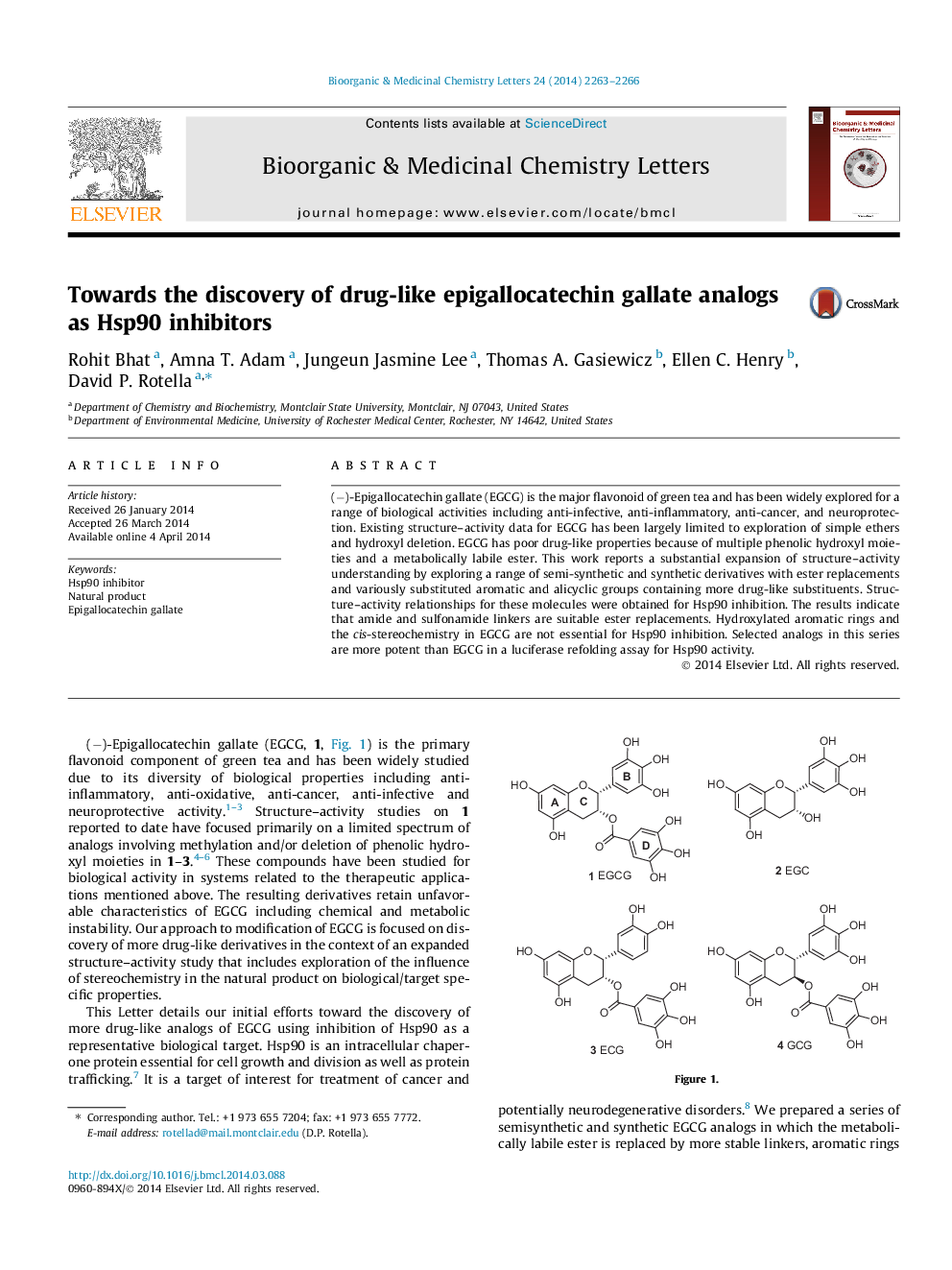| Article ID | Journal | Published Year | Pages | File Type |
|---|---|---|---|---|
| 1369039 | Bioorganic & Medicinal Chemistry Letters | 2014 | 4 Pages |
(−)-Epigallocatechin gallate (EGCG) is the major flavonoid of green tea and has been widely explored for a range of biological activities including anti-infective, anti-inflammatory, anti-cancer, and neuroprotection. Existing structure–activity data for EGCG has been largely limited to exploration of simple ethers and hydroxyl deletion. EGCG has poor drug-like properties because of multiple phenolic hydroxyl moieties and a metabolically labile ester. This work reports a substantial expansion of structure–activity understanding by exploring a range of semi-synthetic and synthetic derivatives with ester replacements and variously substituted aromatic and alicyclic groups containing more drug-like substituents. Structure–activity relationships for these molecules were obtained for Hsp90 inhibition. The results indicate that amide and sulfonamide linkers are suitable ester replacements. Hydroxylated aromatic rings and the cis-stereochemistry in EGCG are not essential for Hsp90 inhibition. Selected analogs in this series are more potent than EGCG in a luciferase refolding assay for Hsp90 activity.
Graphical abstractFigure optionsDownload full-size imageDownload as PowerPoint slide
